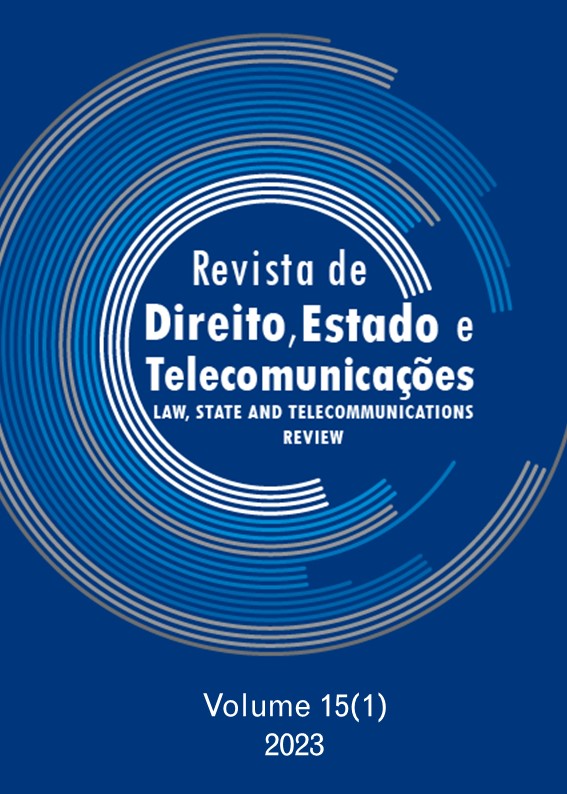Civil Liability in the Use of Artificial Intelligence in Portugal
In particular in Medical Activity
DOI:
https://doi.org/10.26512/lstr.v15i1.46790Keywords:
Civil Liability. Artificial Intelligence. Medical Activity. Producer Liability. User Liability.Abstract
[Purpose] In this article we intend to analyze the use of artificial intelligence (AI) in medicine and its consequences in terms of civil liability. This is because there are several damages that can be caused by electronic systems equipped with AI, especially if we consider their increasing evolution, autonomy and development.
[Methodology/Approach/Design] The methodology of this scientific article is based on the research of doctrinal positions, both convergent and divergent, in order to present and discuss these doctrinal currents. Examples on the application of artificial intelligence to medicine are analyzed and, based on that basis, the necessary requirements for the verification of the obligation to indemnify are analyzed.
[Findings] It is considered to what extent, and in order to make maximum use of the positive opportunities offered by these AI systems, the law has to shape up and introduce fair compensation procedures in case of harmful actions.
References
Andrade, M. (1997). Teoria Geral da Relação Jurídica. Vol. I - Sujeito e Objeto. Coimbra: Almedina.
Antunes, H. S. (2021). A responsabilidade civil aplicável à inteligência artificial: primeiras notas críticas sobre a resolução do Parlamento Europeu de 2020, Revista de Direito da Responsabilidade, 3.
Barbosa, M. M. (2020). E quando o algoritmo erra? Reflexão a propósito da pandemia de Covid-19, Revista de Direito da Responsabilidade, Ano 2.
Barbosa, M. M. (2020). O futuro da responsabilidade civil desafiada pela inteligência artificial: as dificuldades dos modelos tradicionais e caminhos de solução. Revista de Direito da Responsabilidade, Ano 2.
Barbosa, M. M. (2020). Inteligência artificial, e-persons e direito. Direito e Robótica, Instituto Jurídico, Centro de Direito do Consumo da Faculdade de Direito da Universidade de Coimbra.
Barbosa, M. M. (2014). Estudos a propósito da responsabilidade objetiva, Principia.
Barbosa, M. M. (2021). Inteligência artificial, responsabilidade civil e causalidade: breves notas. Revista de Direito da Responsabilidade, Ano 3.
Campos, J. (2019). A responsabilidade civil do produtor pelos danos causados por robôs inteligentes à luz do regime do Decreto-Lei n.º 383/89, de 6 de novembro, Revista de Direito da Responsabilidade, Ano 1.
Costa, M. J. A. (2009). Direito das Obrigações, Almedina, 12.º edição revista e atualizada de 2009, 7.ª reimpressão de 2019.
Eidenmuller H. (2017). Robot’s legal personality, https://blogs.law.ox.ac.uk/research-and-subject-groups/research-collection-law-and-technology/blog/2017/02/robots%E2%80%99-legal
Fernandes, M. M. (2022). A perda de chance no direito português, Nova Causa, Edições Jurídicas.
Horster, H. E. (2019). A Parte Geral do Código Civil Português, 2.ª edição totalmente revista e atualizada, Almedina.
Maia, A. R. (2021). Ana Rita, A Responsabilidade Civil na Era da Inteligência Artificial – Qual o caminho?. Julgar Online.
Mendes, P. M. P. (2020). Inteligência Artificial e Responsabilidade Civil: as possíveis “soluções” do ordenamento jurídico português. Revista de Direito da Responsabilidade, Ano 2.
Matos, F. A. (2020). Responsabilidade por danos causados a terceiros por robôs, in Direito e Robótica, Instituto Jurídico, Centro de Direito do Consumo da Faculdade de Direito da Universidade de Coimbra.
Pereira, A. E. D. (2017). Partilhar o mundo com robôs autómomos: a responsabilidade civil extracontratual por danos. Introdução ao problema. Cuestiones de Interés Jurídico, Instituto de derecho iberoamericano 2017.
Pinto, C. A. M. (2020). Teoria Geral do Direito Civil, Gestlegal, 5.º edição.
Silva, J. C. (1990). Responsabilidade civil do produtor, Almedina.
Silva, N. S. (2019). Inteligência artificial, robots e responsabilidade civil: o que é que é diferente?. Revista de Direito Civil, 4.
Stone, P. et al. (2016). Artificial intelligence and life in 2030, One Hundred Year Study on Artificial Intelligence: Report of the 2015-2016 Study Panel, Stanford University, 2016, https://ai100.stanford.edu/sites/g/files/sbiybj18871/files/media/file/ai100report10032016fnl_singles.pdf
Varela, J. M. A. (2017). Das obrigações em geral, volume I, Almedina, Coimbra.
Downloads
Published
Issue
Section
License
Copyright (c) 2023 Law, State and Telecommunications Review

This work is licensed under a Creative Commons Attribution 4.0 International License.
By submitting this paper to the Law, State and Telecommunications Review,
I hereby declare that I agree to the terms of the Creative Commons Attribution 4.0 International (CC BY 4.0).


